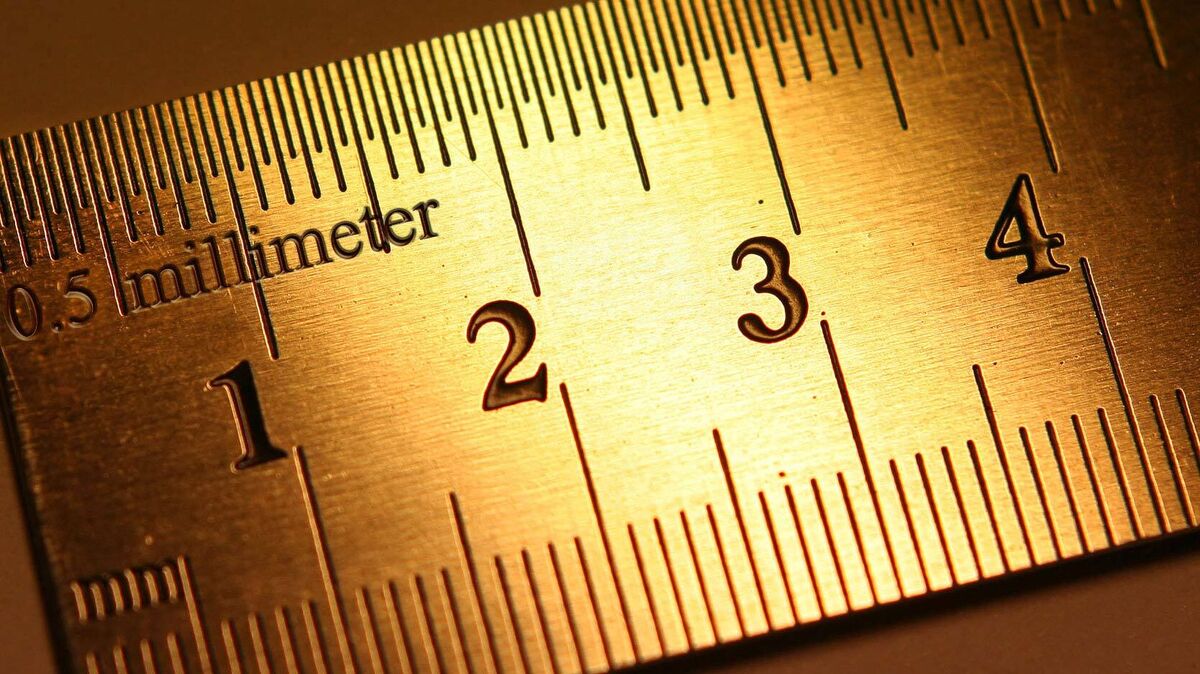
The metric system provides a logical way to organize numbers and mathematical thinking. The system is organized by giving names to each order of magnitude; that is, every time zeros are added to the place value (ones, tens, hundreds, thousands, etc.), metric system prefixes are used to indicate the value. Take a look at the most common metric system prefixes and where you’ll find them.
Common Metric System Prefixes and Definitions
Metric system prefixes come before a basic unit of measure to indicate a multiple (or submultiple) of that unit. Basic metric units and what they measure include:
- meter (length)
- gram (mass)
- liter (volume)
- second (time)
Prefixes are added as place values are added. For example, adding kilo- to the unit “meter” makes “kilometer,” or one thousand meters. But adding milli- to “meter” creates “millimeter,” which means one thousandth of a meter. Below is a table of the most commonly used metric prefixes that can be added to the basic units of measurement.
Metric Prefix | Notation | Place Value |
pico- | 0.000000000001 | trillionth |
nano- | 0.000000001 | billionth |
micro- | 0.000001 | millionth |
milli- | 0.001 | thousandth |
centi- | 0.01 | hundredth |
deci- | 0.1 | tenth |
1 | one (no prefix) | |
deca- | 10 | ten |
hecta- | 100 | hundred |
kilo- | 1,000 | thousand |
mega- | 1,000,000 | million |
giga- | 1,000,000,000 | billion |
tera- | 1,000,0000,000,000 | trillion |
Metric system prefixes provide a simple way to understand exactly what each unit of measurement stands for in the metric system, since the prefixes tell you how much bigger a unit is than the base unit. Take a look at the most commonly used metric prefixes for length, mass, volume, and time.
Metric Prefixes for Length
When you’re measuring how long something is with the metric system, you use meters. Here are the prefixes most commonly used with the word “meter” to describe length.
Metric Prefix | Place Value Definition | Usage for Length |
milli- | 0.001 | milliliter, milligram |
centi- | 0.01 | centimeter |
deci- | 0.1 | decimeter |
1 | meter (no prefix for base unit) | |
deca- (or deka-) | 10 | decameter (or dekameter) |
hecto- | 100 | hectometer |
kilo- | 1,000 | kilometer |
Metric Prefixes for Mass
Measurements of mass tell you how much matter an object contains. The basic unit for weight is grams, and it ranges from a metric ton to a tiny milligram. Here are the prefixes for metric measurements of mass.
Metric Prefix | Place Value Definition | Usage for Mass |
milli- | 0.001 | milligram |
centi- | 0.01 | centigram |
deci- | 0.1 | decigram |
1 | gram (no prefix for base unit) | |
deca- (or deka-) | 10 | decagram (or dekagram) |
hecto- | 100 | hectogram |
kilo- | 1,000 | kilogram |
mega- | 1,000,000 | megagram (metric ton) |
Metric Prefixes for Volume
If you want to know how much space an object takes up, measure its volume with liters. Large volumes are measured in kiloliters, while small volumes are generally measured in milliliters. Here are the most common metric prefixes and their definitions for volume measurement.
Metric Prefix | Place Value | Usage for Length |
milli- | 0.001 | milliliter |
centi- | 0.01 | centiliter |
deci- | 0.1 | deciliter |
1 | liter (no prefix for base unit) | |
deca- (or deka-) | 10 | decaliter (or dekaliter) |
hecto- | 100 | hectoliter |
kilo- | 1,000 | kiloliter |
Metric Prefixes for Time
You may have heard the words “nanosecond” or “millisecond” before, but what about “decasecond?” It’s less common in everyday life than in a chemistry or physics report, but multiples of time use metric prefixes as well. Take a look at these prefixes used to measure time.
Metric Prefix | Place Value Definition | Usage for Length (Common Units) |
nano- | 0.00001 | nanosecond |
micro- | 0.0001 | microsecond |
milli- | 0.001 | millisecond |
1 | second (no prefix for base unit) | |
deca- (or deka-) | 10 | decasecond (0.17 minutes) |
hecto- | 100 | hectosecond (1.67 minutes) |
kilo- | 1,000 | kilosecond (16.7 minutes) |
mega- | 1,000,000 (million) | megasecond (11.6 days) |
giga- | 1,000,000,000 | (31.7 years) |
Everyday Examples of Metric System Prefixes
A few metric prefixes have become common in areas of language not related to measurement. For example, mega- is often added to any word colloquially to show that something is very large.
- The Mega Millions jackpot is huge this weekend.
- The mega-monster is sure to be featured in the movie's sequel.
- Be sure to stop at the store’s mega-savings sale tomorrow.
- We can’t hear you; use the megaphone to speak.
Likewise, micro- has become common to indicate that something is very small.
- That micro-apartment in Manhattan still costs more than I can afford.
- There's a fancy new microbrewery opening down the street.
- Use the microscope to inspect the blood sample.
- I can research past newspapers using the microfiche.
Understanding the Metric System
It's worth the effort to memorize these common metric system prefixes so that you understand basic units of measurement and how they are related, even if you don't use the metric system on a regular basis. If you’re ready to move on, check out this helpful list of the abbreviations for basic metric system units. You can also use a comparison guide of the metric system and the imperial system to compare the units and uses of these two popular measurement systems.